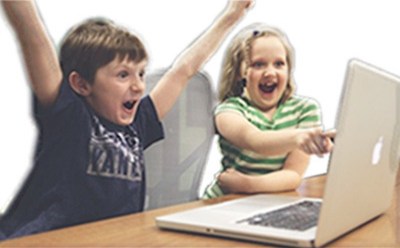Coding Class

In this online coding class for kids, students will learn the fundamentals of programming through engaging activities and projects, using kid-friendly programming languages like Scratch and Python, and develop problem-solving skills while having fun creating games, animations, and interactive stories.

How we work …
- Coding platforms such as Scratch, Python, and Code.org, which provide a visual and interactive way for kids to learn programming concepts.
- Interactive tutorials, videos, and animations that demonstrate coding principles and provide step-by-step guidance.
- Virtual whiteboards and screen-sharing tools allow the teacher to demonstrate coding concepts and techniques.
- Coding challenges and projects that allow kids to apply what they have learned in a practical and engaging way.
- Online resources such as coding forums, code libraries, and coding communities where students can collaborate, share their work, and get feedback.
- Printed or digital resources such as coding books or workbooks that can be used for reference or reinforcement of coding concepts.
- Online quizzes and assessments to help students evaluate their progress and reinforce key coding concepts.
Coaching
Our good coding teacher should possess the following qualities:
- Knowledgeable: The teacher should have a strong understanding of coding concepts and the ability to explain them in a clear and understandable way.
- Engaging: The teacher should be able to make the class fun and engaging for students, with a positive and enthusiastic attitude.
- Patient: The teacher should be patient and understanding, particularly when working with students who may be struggling to understand coding concepts.
- Organized: The teacher should be well-organized, with clear lesson plans and a structured approach to teaching.
- Responsive: The teacher should be responsive to students’ needs and questions, with the ability to provide timely feedback and support.
- Creative: The teacher should be able to think creatively and come up with innovative ways to teach coding concepts and keep students engaged.
- Collaborative: The teacher should be willing to collaborate with students, allowing them to work together and share their ideas and projects.
- Technologically savvy: The teacher should be comfortable with the technology used to deliver the class, such as video conferencing, coding platforms, and online resources.
Group Activities
Here are some activities that could be used in an online coding class for kids:
- Code-alongs: The teacher can lead students through coding exercises, with the students coding along in real-time.
- Game creation: Students can create their own games using coding platforms like Scratch, Python, or Code.org.
- Animation creation: Students can use coding tools to create animations, such as moving objects or characters.
- Storytelling: Students can create interactive stories using coding tools, incorporating animations and other interactive elements.
- Coding challenges: Teachers can present coding challenges to students, such as creating a specific program or solving a coding problem.
- Collaborative projects: Students can work together on a larger project, such as a group game or animation.
- Debugging exercises: Students can work on debugging exercises where they identify and fix errors in existing code.
- Personal projects: Students can work on their own personal projects, such as creating their own website or app, with guidance and support from the teacher.
- Coding competitions: Teachers can organize coding competitions where students can compete against each other to see who can complete a challenge or project the fastest or most effectively.
- Guest speakers: Teachers can invite guest speakers who are experts in coding to speak to the class and answer questions.

To unlock the benefits, the course integrates three pillars.
Immersion

Strategy

Tactics


Here’s what you get …
Here are some possible learning objectives for an online kids’ coding class:
- Understand basic coding concepts, such as variables, loops, and conditionals.
- Develop problem-solving skills by breaking down problems and creating algorithms to solve them.
- Learn how to use coding tools and platforms, such as Scratch, Python, or Code.org.
- Create games, animations, and interactive stories using coding tools.
- Collaborate with peers on coding projects and share feedback.
- Develop critical thinking skills by debugging code and identifying and fixing errors.
- Explore and experiment with coding concepts to encourage creativity and innovation.
- Apply coding skills to real-world problems and projects.
- Develop persistence and resilience in the face of coding challenges.
- Build confidence in coding skills and the ability to learn new coding concepts independently.

Invest in yourself today! Pick a plan…
Online Study
$190.00
- Online course
- Answer questions by Email or live online periodically.
Group study
$20.00
per day
- Live online blended in-person tutoring
- Online course review
- One hour per day
Private Coaching
$1.00
- One to One private tutoring
- Book an appointment to get a quote
